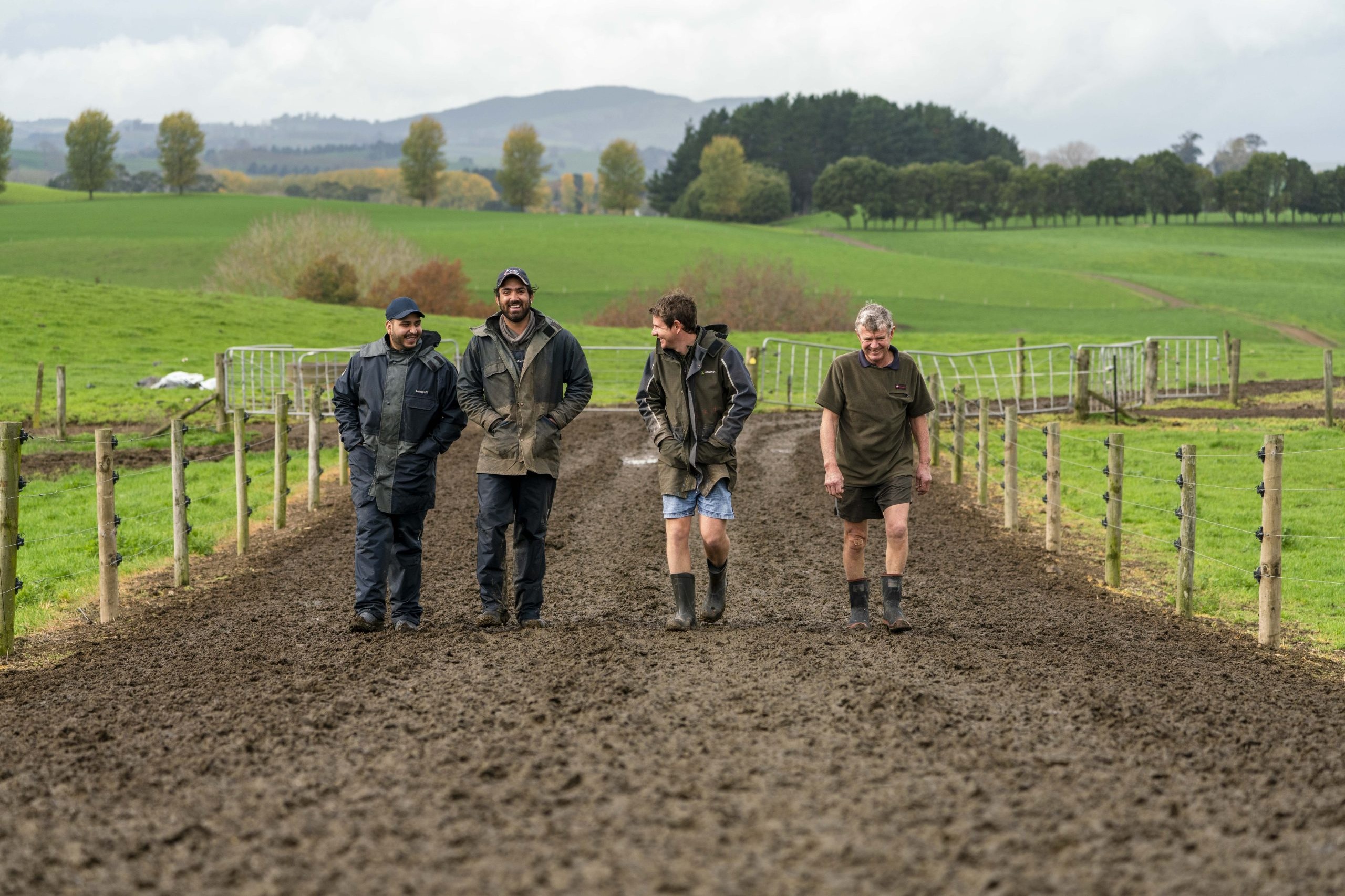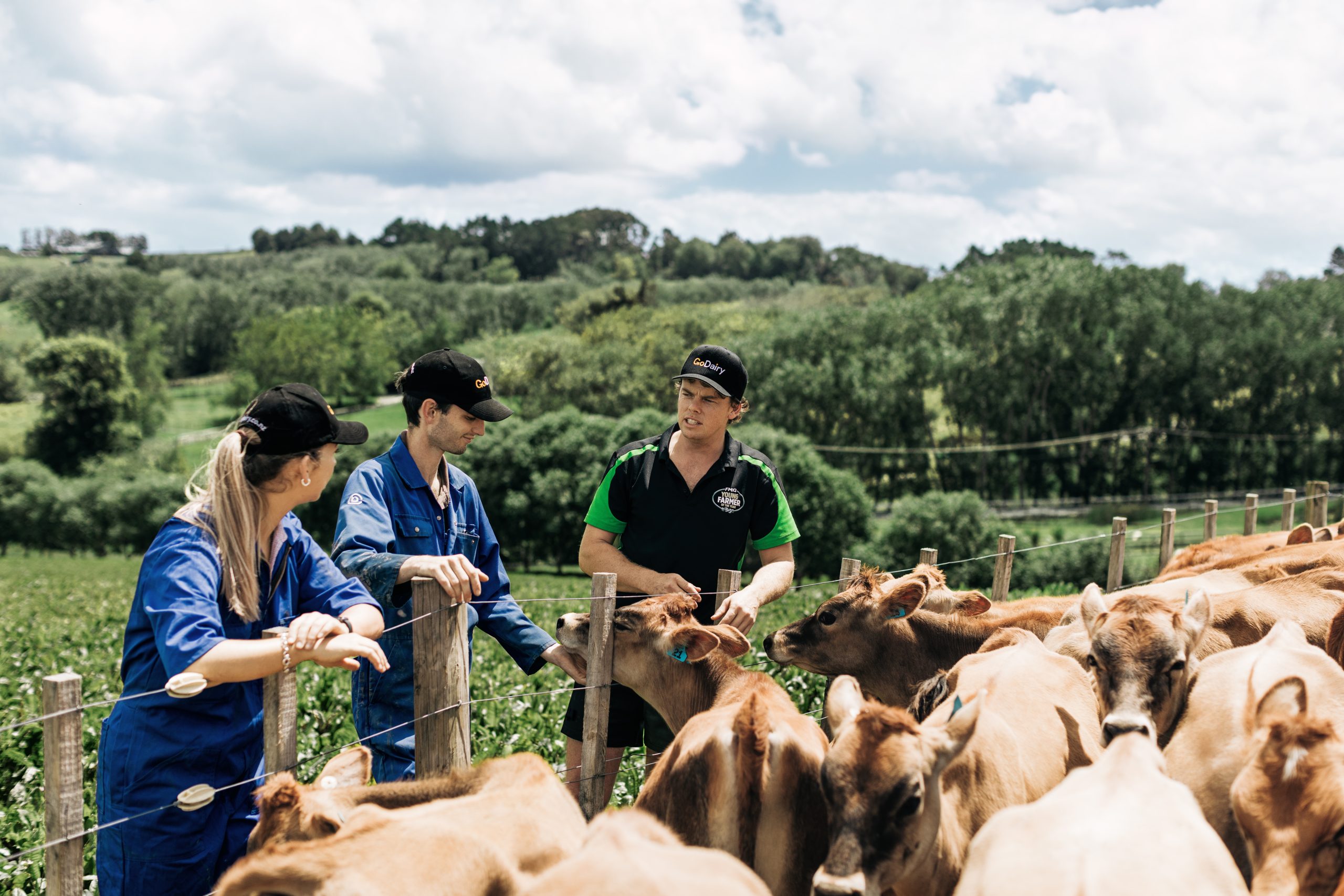By ANNE LEE
It’s been a tough couple of years for managing teams on dairy farms around the country with major staff shortages increasing stress levels and stealing away the time that could have been spent inducting new staff and helping the team get to know each other.
But it’s never too late and for those with multi-cultural teams there’s a whole other dimension of complexity to setting up a harmonious workplace.
Megan Bates is Beef + Lamb Southern South Island extension manager and has just completed a Kellogg Leadership study into managing multi-cultural teams in the agriculture sector. She’s had first hand experience, living on the dairy farm her partner manages in Southland where European New Zealanders, Māori, Filipino, Irish and Chilean cultures are all represented. Her partner is Irish and she says there have been times where it’s been easy to misread situations because of cultural differences or interpret comments in completely the wrong way.
That can create some interesting moments but put that into a work situation and throw in the stress of having to get lots of jobs done quickly, especially at this time of the year, along with being physically tired, possibly separated from loved ones and the whole dynamic can get tense at best or even explosive.
Megan says her study – which included an online survey of 48 respondents and semi-structured interviews with 10 farmers – found that 85% of agricultural teams were multicultural with the average number of cultures at three.
Of those 56% could think of a time when there had been cultural challenges and of those 48% were related to language barriers.
Her study reiterated findings of others that multi-cultural teams rely heavily on those in leadership positions to set them up for success.
She says 88% of survey participants touched on effective management as being a factor in creating strong multi-cultural teams. Megan says those who manage workplaces with a number of cultures need a clear understanding of how to be inclusive of all their members, taking into account their cultural backgrounds and how they prefer to work.
Effective management included clear expectations, organisation, communication, support and education as well as relationship building by creating social activities.
“Cultural diversity within a team can bring a number of strengths along with some challenges that need empathy, problem-solving and patience to resolve them.
“Learn how to have culturally revealing conversations with your team members and really listen to what they’re saying,” she says.
Culturally revealing conversations can start out by you sharing a bit about yourself and your background, how you like to work.
By opening up, the other party may feel more confident about sharing their views or past experiences at work that were good and what they found difficult.
Making some time for the team to gather outside of work – particularly where you can share food – is a great way to learn more about how people interact, their cultural background and experiences.
She says 27% of people she questioned said they did this regularly.
Getting over the language barrier can mean thinking a bit creatively using visual aids such as diagrams or even videos.
Having a white board in the office where tasks, instructions or messages are written up clearly gives people a chance to process them at their pace and gives them something to go back to and check without having to ask for it to be repeated.
However, she says creating an environment where people feel comfortable with double-checking and asking to have something repeated should be the goal too.
Phone apps such as WhatsApp, Messenger and Snapchat are used to help overcome difficulties in understanding each other.
Megan found 60% of those with multi-cultural teams thought their teams were richer in experience and knowledge when they were diverse.
It’s a common finding that multi-cultural, diverse teams have a wide range of skills with the whole team benefiting from an increased ability to problem solve and ability to innovate but it does depend on how comfortable migrant team members feel to put forward their ideas.
MIGRANT EXPLOITATION
Disturbingly Megan says she’d found recent studies – one completed in 2019 on Temporary Migrant Exploitation in New Zealand – said more than half of those participating in that study reported they had worked excessive hours.
All of those interviewed in the 2019 report who worked in the dairy sector stated they had been asked to do extra hours but were not paid. The majority of participants in that study felt trapped and had to accept their conditions and exploitation because they had no other option.
They felt they needed the employer to retain a working visa and worried that if the employer gave them a bad reference it would impact their chances of getting another job and their reputation.
The Government responded by announcing it would set up a visa that will support exploited staff to leave their workplace. Holding visa requirements over team members to deal with an issue is threatening behaviour and isn’t likely to bring any positive outcomes. As most farmers know only too well NZ’s primary sector and dairying in particular needs large numbers of migrant staff to operate.
“Migrant and immigrant staff have been an integral part of enabling New Zealand agriculture to grow to where it is now and we all need to recognise how important their role is,” she says.
As well as recommending that data and information should continue to be gathered on a range of issues relating to multi-cultural teams Megan is keen to see farm plans expanded to include a people section to help inform and educate farmers about best practices for managing their teams.
- More information is available for migrant staff on www.employment.govt.nz/resolving-problems/types-of-problems/migrant-exploitation.
- Immigration New Zealand’s website also contains advice for employers on settling, supporting and communicating with migrant staff: www.immigration.govt.nz/employ-migrants/settle-migrant-staff/supporting-migrant-staff
Managing multi-cultural teams survey, 2021
- “Fair rosters and workload, good communication, flexibility, clear rules, calling out casual racism quickly (even if it’s friendly), casual and frequent meetings so everyone is comfortable asking questions and discussing problems.”
- “We make sure we use multiple methods of communication.”
- “We have a wealth of experience from all over the world and the team is more productive.”





